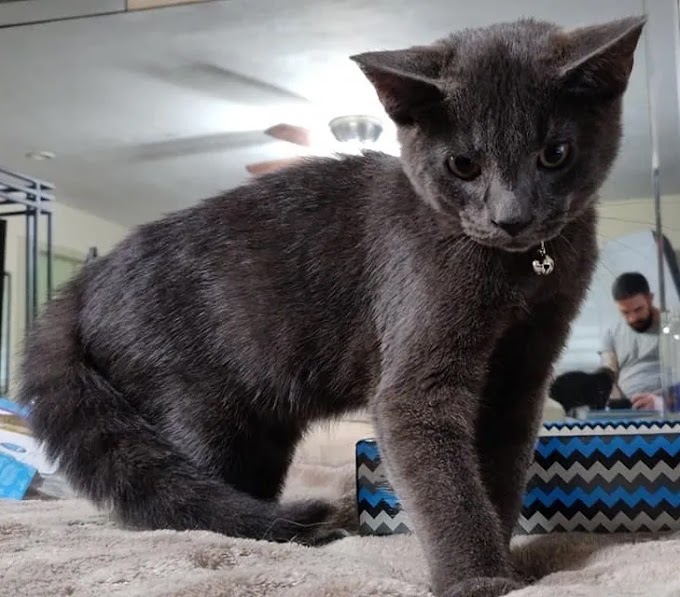When your cat was still a young kitten, you probably took steps to "protect your kitten" from your home, for example by moving household cleaning products where he could not access them and keeping the sewing equipment in a safe place. You need to review some areas around your home to make sure they are safe and comfortable for your older cat.
1. Move the litter box for him
As your cat gets older, he may develop arthritis or other joint problems that make it more difficult to jump and climb. In addition, an older cat may also have less control over his bladder and intestines. Given this combination - stiff joints and urgency in the litter box - look for ways to make the litter box more accessible.
For example, if you have a two-story house, place a litter box on each floor. "Older cats should have easy access to food, water and litter boxes. Therefore, if they choose not to climb the stairs, they are not obliged to do so, "says Emily Levine, DVM, DACVB, Director of Behavioral Services at the Animal Behavior Clinic of the Emergency and Reference Associates. animals in Fairfield, New Jersey.
Do not worry: even if stiff joints can move it a little more slowly, your older cat will probably maintain good litter habits. Make it easier by buying a box with lower sides, so you do not have to struggle to get in and out.
Be worried: If your senior cat begins to systematically miss the litter box, he may have a medical problem. Take her to the vet for a thorough examination as soon as possible.
2. Facilitate the climbing of your older cat
Help her reach the window sill by placing a chair or stool, or by purchasing stairs specially designed for animals. Look for items that give your senior cat a firm and stable base - which will not move if it jumps to another level.
Do not worry: if your older cat's favorite spot is no longer easily accessible, give him a new one. Dr. Levine, who is certified in animal behavior, recommends placing your cat's favorite bed in a warm, draughty place where he feels comfortable and safe.
Warning: most cats love to settle in warm places, but make sure your cat does not overheat. It can be tempting to put a heating pad in your bed, but too much heat can burn your cat.
3. Keep playing with your senior cat
As your cat gets older, he will probably want to spend more time warming up in a warm place to sleep. It is natural for her cheerful behavior to lessen and become more intense, but a regular break always helps her to stay healthy. Look for gentle ways to encourage her to play, such as waving a magic wand toy or placing pieces of dry food for her to "hunt" and eat.
Do not worry: Older cats sometimes prefer to be left alone longer - and that's fine. The idea is to gently encourage regular activities to stay healthy, which will also help maintain the connection you share with her.
Be worried: You may be tempted to adopt a kitten or a young cat to help your senior cat regain his kitten style. Dr. Levine recommends not following this action plan. "A turbulent kitten climbing all over your cat can be more damaging than helpful," she says. "And people tend to focus on the young cat and ignore the older one.
4. Your senior cat needs to be groomed
Help your senior groom, especially in hard-to-reach areas.
5. Lights are your cat's new best friend
6. Do not create challenges by moving things










0 Comments